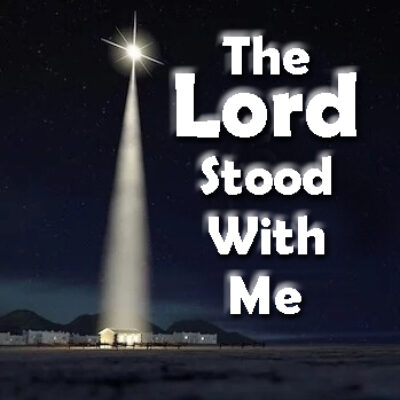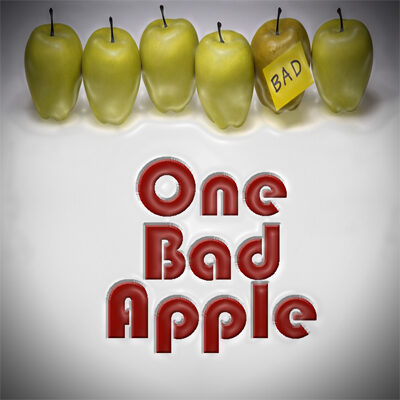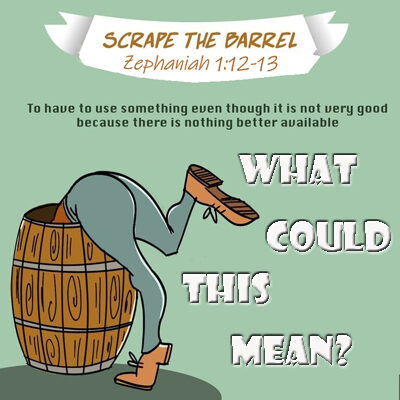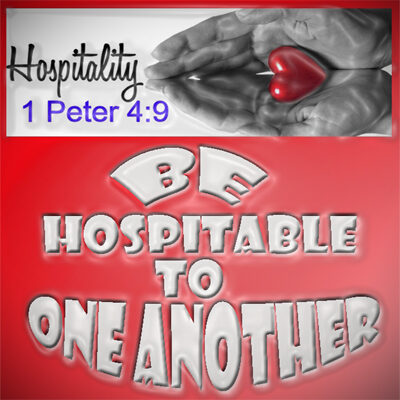Sermons by David Scarpino (Page 6)
What comes to your mind when you hear the word “home”? I remember living in many homes. The longest time spent in Kenmore Ohio, a big yard, old wooden stairs up to the second and third floors. A shed made from an old yellow delivery truck. Now think of the word “Heaven.” What images come to your mind? What emotions are stirred within you? One emotion which should be there is a longing for Heaven.
WHAT IS THAT IN YOUR HAND?
God appeared to Moses in the burning bush and told him to go back to Egypt and lead Israel to the promised land. “Then Moses answered and said, ‘But suppose they will not believe me or listen to my voice; suppose they say, “the Lord has not appeared to you.”‘ So the Lord said to him, ‘What is that in your hand?’ And he said, ‘A rod.’” Moses was taught a lesson that day that when the rod was put into God’s service, it will accomplish what God wanted to be done. It was one of the signs to prove that God had appeared to Moses.
Let’s search the Bible and find what others had in-their hand that God was able to use for his glory.
“So when this corruptible has put on incorruption, and this mortal has put on immortality, then shall be brought to pass the saying that is written: “Death is swallowed up in victory.”” (1 Cor. 15:54)
I can’t tell you how many times I asked someone, how is it going? Only to hear, “I’m Living the Dream!”
I understand the meaning of this proclamation defined by “Gramarist.com” as, “typically use to describe a situation where someone’s experiencing the ideal lifestyle or enjoying some well-deserved success. It can include anything from financial success to creative success.” I began to think about that and came to understand something. If the center focus of “your dream” is success in this world, this life, then I feel sad for you because of this simple truth: “…it is appointed for men to die once, but after this the judgment” (Heb. 9:27). Yes, we must all face the face that we all will die one day and then what will become of all your success, all your possessions?
Another fact concerning death as Solomon wrote, “6 Remember your Creator before the silver cord is [b]loosed, or the golden bowl is broken, or the pitcher shattered at the fountain, or the wheel broken at the well. 7 Then the dust will return to the earth as it was, and the spirit will return to God who gave it. 8 “Vanity of vanities,” says the Preacher, “All is vanity.” (Eccl. 12:6-8). Yes, this life is just a temporary thing, but after one’s body dies, the soul lives on in eternity, the soul never dies.
THE LORD STOOD WITH ME
Paul taught Timothy by telling him about his own life experiences. What happened to me, will likely happen to you. I suffered many things for the sake of the gospel. I had to deal with false apostles, false teachers sin from within the church. But one of the lessons Paul taught, I connected with personally. In 2 Timothy chapter 4 Paul wrote, “16 At my first defense no one stood with me, but all forsook me. May it not be charged against them. 17 But the Lord stood with me and strengthened me, so that the message might be preached fully through me, and that all the Gentiles might hear. Also I was delivered out of the mouth of the lion. 18 And the Lord will deliver me from every evil work and preserve me for His heavenly kingdom. To Him be glory forever and ever. Amen!” (2 Tim. 4:16-18).
As Paul was to face charges, he was abandoned by those who were close to him. I can handle being hated for teaching the gospel, but the pain of being abandoned by those you love is much greater. There are likely reasons of fear by the saints. Fear of beatings, of imprisonment even death, and possibly Paul understood. We know that he prayed, “May it not be charged against them”. The good news in all this is the fact that as children of God, Christians, we are never alone, God is always with you.
Most people know what “dit dit dit dash dash dash dit dit dit” means. It is Morse Code and is an international code signal of extreme distress, used especially by ships at sea. There are two meanings: One is “Save Our Ship” and the other is “Save Our Souls”.
In this lesson I’d like to make a spiritual application using the SOS as a way to remember what godly love is all about. How the word in the bible for “love” is used. That word is, ἀγαπάω [agapao/agape], and means to love, to be full of good-will and exhibit the same. But if you investigate that word a little more you’ll see that godly love includes “S”ervice, “O”bedience” and “S”acrifice. John wrote, “7 Beloved, let us love one another, for love is of God; and everyone who loves is born of God and knows God. 8 He who does not love does not know God, for God is love. 9 In this the love of God was manifested toward us, that God has sent His only begotten Son into the world, that we might live through Him. 10 In this is love, not that we loved God, but that He loved us and sent His Son to be the propitiation for our sins.” (1 John4:7-10). Nine times in just four verses.
I hope that after listening to this lesson, every time you read the word love in your New Testament, you’ll connect these thoughts and have a greater understanding and appreciation for God’s love. Why? Because God served man by coming down from Heaven and putting on flesh. Jesus the Emmanuel then obeyed His Father in all things and finally, Jesus died, a sacrifice, so that you can be saved, reconciled.
There is a saying that most people are familiar with—”One Bad Apple spoils the bunch”. It is true that one rotten apple in a barrel can cause the others to spoil. I think the origin of this phrase is interesting. According to Ben Zimmer a linguist, this idiom goes back to at least 1340. The original phrase was, “A rotten apple quickly infects its neighbor.” It meant that a rotten apple, or a rotten person, corrupts others.
In Joshua 6 God led the people Israel in victory in Jericho and yet the next battle ended in defeat. Why? Same people, same God. What was the difference? As we study we’ll learn that it was just one individual that was the reason for the the defeat, and for all Israel to be troubled. His name was Achan, and what he did had consequences that reached beyond himself, to his family and to the entire nation.
We need to understand that our sin always has consequence and often affects those around us. Maybe that is why Paul commanded us, “in lowliness of mind let each esteem other better than themselves” (Phil. 2:3).
The Apostle Paul recounting his meeting with Jesus on the road to Damascus says, “15 So I said, ‘Who are You, Lord?’ And He said, ‘I am Jesus, whom you are persecuting. 16 But rise and stand on your feet; for I have appeared to you for this purpose, to make you a minister and a witness both of the things which you have seen and of the things which I will yet reveal to you. 17 I will [a]deliver you from the Jewish people, as well as from the Gentiles, to whom I [b]now send you, 18 to open their eyes, in order to turn them from darkness to light, and from the power of Satan to God, that they may receive forgiveness of sins and an inheritance among those who are sanctified[c] by faith in Me.’” (Acts 26:15-18).
What an amazing event this was in Saul’s life. So powerful that it changed him forever to walk in a new direction. Saul turned from being a persecutor of God’s people, from seeking to destroy the way of Christ to preaching Christ Jesus and establishing most of the first century churches of Christ.
In this lesson the focus will come mostly from verse 18 where Paul quotes what Jesus commanded he must do, “to open their eyes, in order to turn them from darkness to light, and from the power of Satan to God, that they may receive forgiveness of sins and an inheritance among those who are sanctified[c] by faith in Me.”
There is an idiom that goes: “To scrape the bottom of the barrel”. (Cambridge Dictionary) The idiom means “to use the worst people or things because that is all that is available:” According to Wikipedia, this idiom “Derived from the historical practice in the early European history of storing food in barrels; when food supplies ran low, only what was on the very bottom of the barrel remained, and had to be removed by scraping.” Alex Epstein in his 2014 book, “The Moral Case for Fossil Fuels” Stated the expression “scraping the bottom of the barrel” comes from the phenomenon of the oil in a barrel existing in different fractions, from heavy to light. The heavy fractions sit at the bottom of the barrel, and the heaviest, like asphaltum, which goes into asphalt, can be hard to scrape out and impossible to use.
Believe it or not—this is a bible term and was used by Zephaniah – let’s read it here: “12 “And it shall come to pass at that time that I will search Jerusalem with lamps, and punish the men who are settled[a] in complacency, Who say in their heart, the Lord will not do good, nor will He do evil.’ 13 Therefore their goods shall become booty, and their houses a desolation; They shall build houses, but not inhabit them; They shall plant vineyards, but not drink their wine.” (Zephaniah 1:12-13).
Can you guess which word captures the Idiom Scrap the Barrel. Notice the word used here, “Settled” — that is it. Strong’s says it a primitive root; MEANING to shrink, i.e. Thicken (as unracked wine, curdled milk, clouded sky, frozen water) — congeal, curdle, dark, settle. The KJV sheds a little more light on this: “And it shall come to pass at that time, that I will search Jerusalem with candles, and punish the men that are settled on their lees: that say in their heart, The LORD will not do good, neither will he do evil.” (Zeph. 1:12).
What then does this mean to Israel and then to the church? Listen in and we’ll see together.
Hospitality is a command not an option or choice and one of those things that must have become a lost art with many in the church today.
Some may remember when everyone on your street was known by name. Back when a “stranger”, that is a new person or family moved into the neighborhood—people would bring them welcoming pies and goodies along with an invitation to dinner or family barbecue—and before you know it, they are no longer strangers.
I hope that in this little part of our study from God’s word we will find spiritual resolve and strength to reverse the inhospitable trend among many of the people of God.
THINGS PRECIOUS TO GOD PART 2
What things do you hold precious? Wife, children, grandchildren? Is there something that you own that you hold precious? We all have something that is so important to us that we would fight, even die for it. What is that in your life?
But, truth be known, if what you hold precious most is not to be in heaven in the after while, then you are susceptible to falling short of that home in heaven. When Jesus counseled the rich young ruler who asked Jesus “…what shall I do that I may inherit eternal life?” (Mark 10:17), the ultimate answer Jesus gave, “One thing you lack: Go your way, sell whatever you have and give to the poor, and you will have treasure in heaven; and come, take up the cross, and follow Me” (Mark 10:21). We know that young ruler went away sorrowfully, because at the time he had possessions that were precious to him (v.21).
Jesus said, “He who loves his life will lose it, and he who hates his life in this world will keep it for eternal life.” (John 12:25). Knowing what is precious to God is a great way to learn to see things God’s way. To value what He values – to know what is important to God. There are so many things we could talk about—it’s an endless list and understanding them—helps us set our priorities accordingly.
In this part two we’ll finish up the things that our Bibles describe as being precious in the sight of God. We begin with unity of the saints is precious to God…









